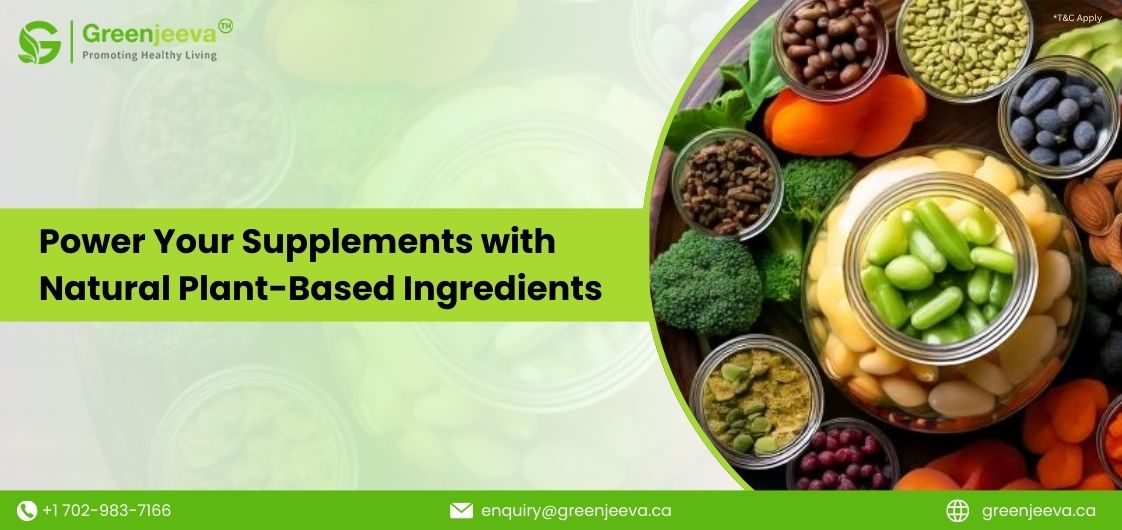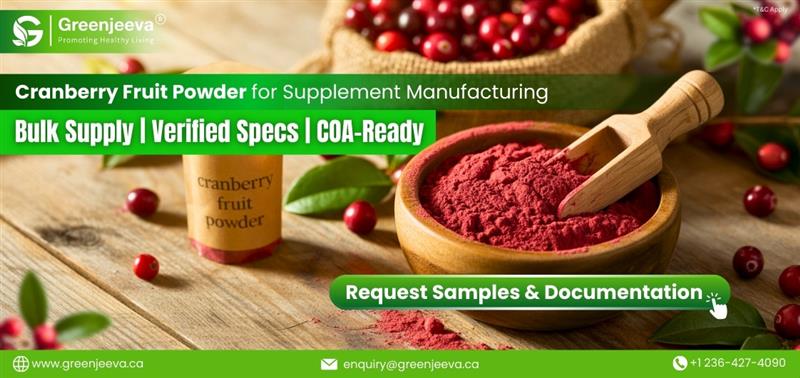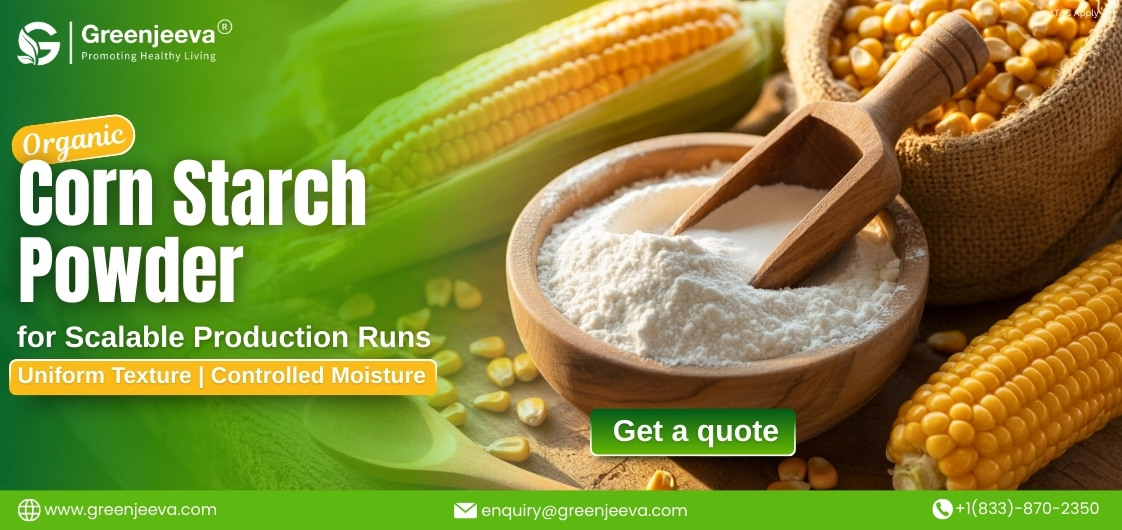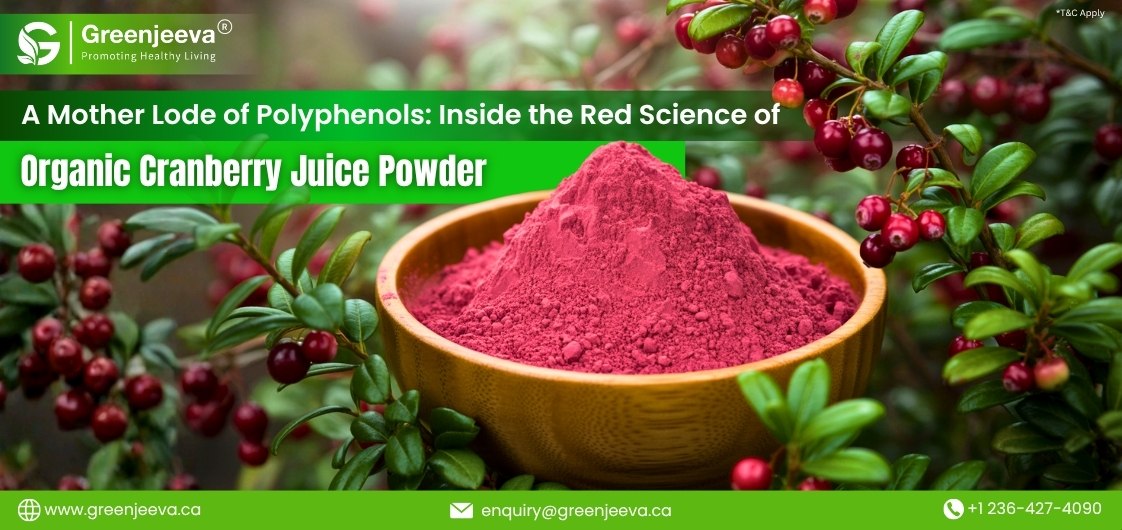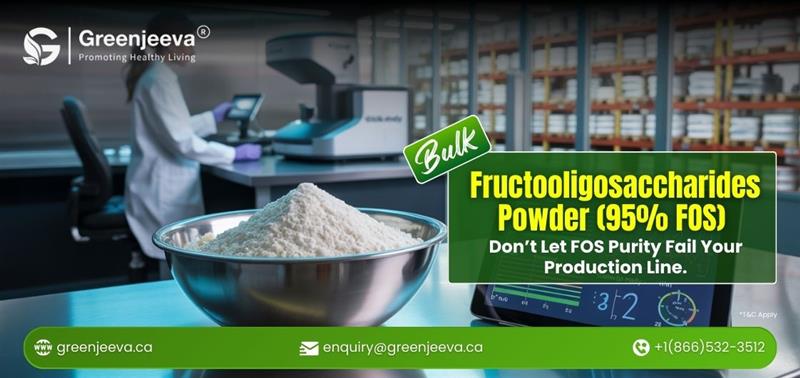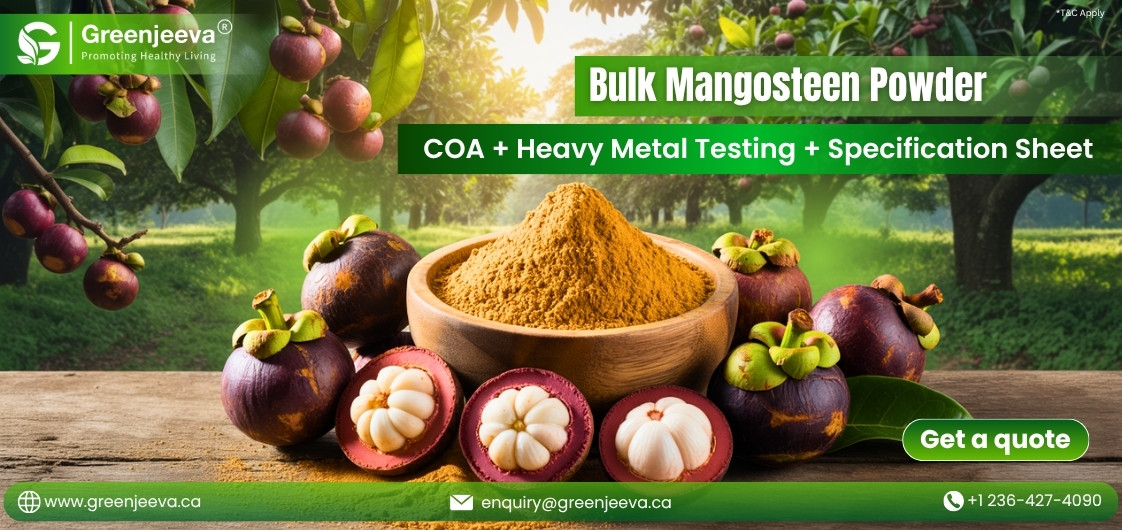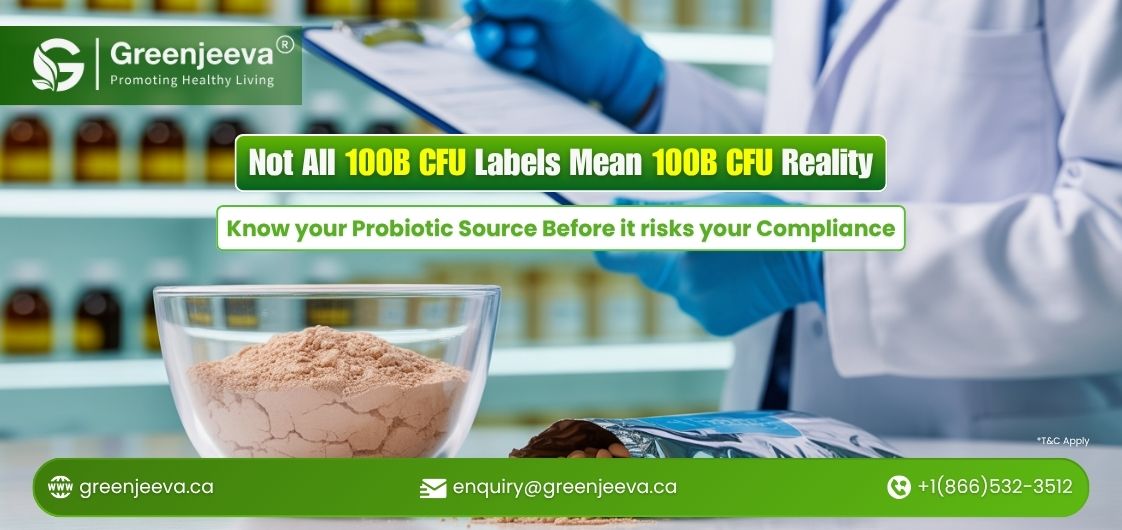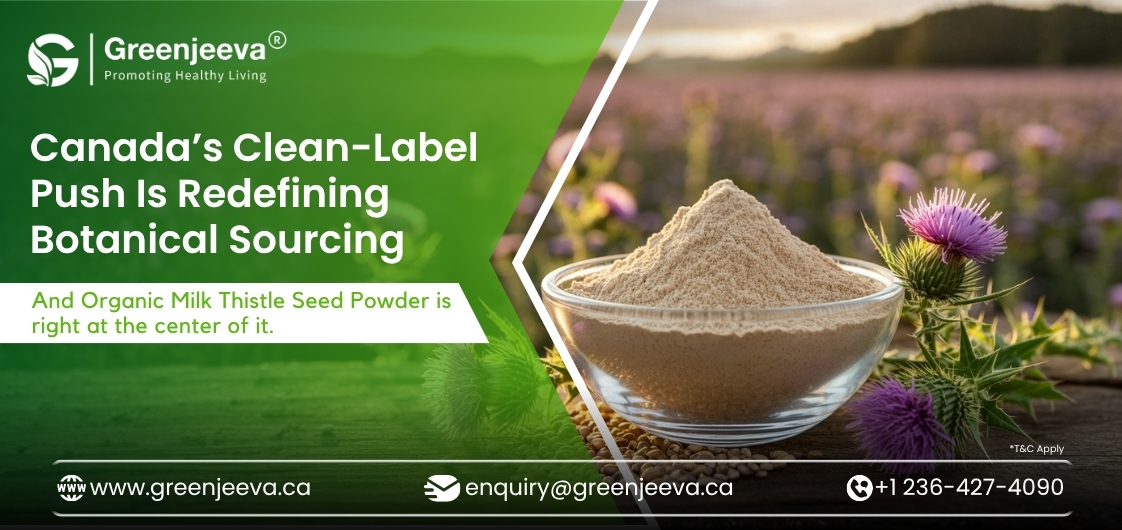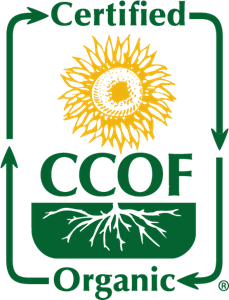As the demand for plant-based products rises, supplement manufacturers are increasingly seeking natural alternatives to meet consumer expectations. Formulating with plant-based sources of essential vitamins and minerals is not only a sustainable choice but also aligns with the clean-label movement. Leveraging these natural ingredients can enhance product appeal, providing a competitive edge in the crowded supplement market.
This blog highlights key plant-based sources of vitamins and minerals, offering recommendations that can elevate supplement formulations and attract health-conscious buyers looking for natural ingredients.
Key Plant-Based Sources of Essential Vitamins & Minerals
1. Vitamin C – Acerola Cherry and Camu Camu
Two potent sources of plant-based Vitamin C, acerola cherry and camu camu, offer a natural way to boost immunity and antioxidant support. Acerola cherry contains up to 30 times more Vitamin C than oranges, making it a prime choice for manufacturers looking to add a concentrated source of this vitamin to their formulations.
Camu camu, a berry from the Amazon rainforest, also offers high levels of Vitamin C, helping to support collagen production and skin health. These natural options provide manufacturers with organic, plant-based ingredients to enhance their product lineup.
2. Iron – Spinach and Spirulina
Iron is crucial for red blood cell production and energy levels, and plant-based alternatives like spinach and spirulina offer rich sources. Spinach is widely recognized for its iron content, alongside other key nutrients like Vitamin K and magnesium. Spirulina, a blue-green algae, is not only high in iron but also contains protein and a range of B vitamins, making it ideal for natural plant-based supplements aimed at improving energy and vitality.
3. Calcium – Sesame Seeds and Almonds
For supplement formulations targeting bone health, calcium is essential. Sesame seeds and almonds offer excellent plant-based calcium sources, perfect for manufacturers seeking dairy-free alternatives. Sesame seeds, in particular, are rich in calcium, while almonds also contribute magnesium, which works synergistically with calcium for bone and muscle health.
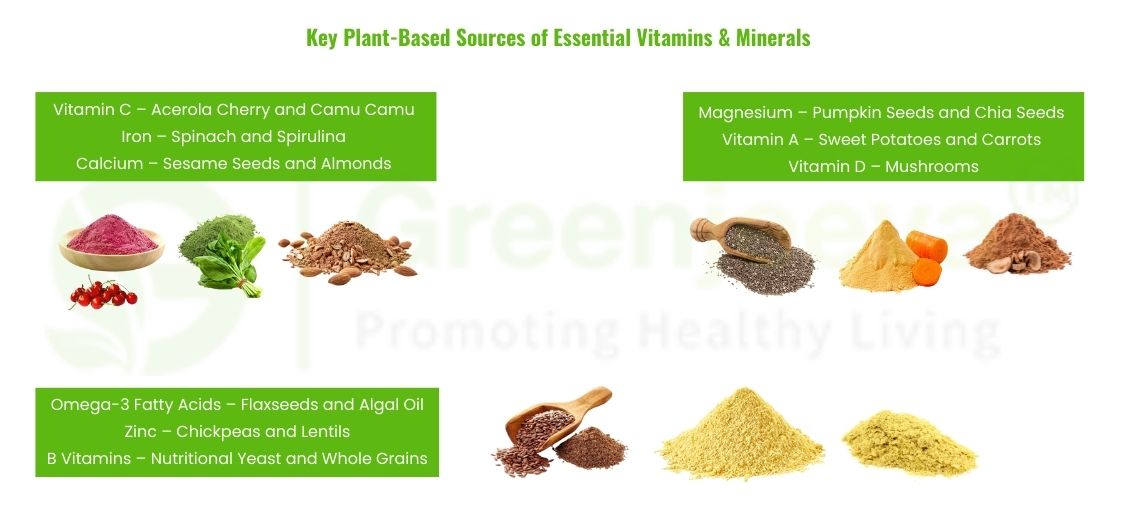
4. Magnesium – Pumpkin Seeds and Chia Seeds
Magnesium plays a vital role in muscle function, heart health, and stress reduction. Two top sources for plant-based supplements are pumpkin seeds and chia seeds. Pumpkin seeds are not only high in magnesium but also rich in iron, zinc, and healthy fats. Chia seeds, with their diverse nutrient profile, support heart health, digestion, and energy levels. These ingredients are ideal for products focusing on stress management and overall wellness.
5. Vitamin A – Sweet Potatoes and Carrots
Vitamin A, known for supporting vision and immune function, can be sourced from sweet potatoes and carrots. These vibrant vegetables contain beta-carotene, a plant compound that converts to Vitamin A in the body. Incorporating these ingredients into supplements allows manufacturers to provide a natural way to support eye health, immune function, and skin vitality.
6. Vitamin D – Mushrooms
Mushrooms are one of the few plant-based sources of Vitamin D, specifically Vitamin D2. Certain mushrooms, like maitake and shiitake, are exposed to UV light, increasing their Vitamin D content. This natural source of Vitamin D can help manufacturers create supplements targeting bone health and immune function without the need for animal-derived ingredients.
7. Omega-3 Fatty Acids – Flaxseeds and Algal Oil
For heart and brain health, omega-3 fatty acids are essential, and plant-based sources like flaxseeds and algal oil provide excellent options. Flaxseeds are rich in alpha-linolenic acid (ALA), while algal oil contains the more bioavailable forms EPA and DHA. These plant-based alternatives offer an eco-friendly solution for omega-3 supplements, appealing to consumers who avoid fish oil.
8. Zinc – Chickpeas and Lentils
Zinc is necessary for immune function and wound healing, and plant-based sources like chickpeas and lentils provide a viable option for manufacturers. These legumes not only offer zinc but also contain protein and fiber, making them a valuable addition to plant-based supplements aimed at boosting immune health.
9. B Vitamins – Nutritional Yeast and Whole Grains
B vitamins are crucial for energy production and cognitive function, and nutritional yeast is a standout source of B12 for vegans. Whole grains like quinoa and oats are rich in B vitamins, including B1, B2, B6, and folate. These ingredients provide a well-rounded option for natural plant-based supplements targeting energy support and brain health.
Why Choose Plant-Based Sources for Supplement Formulations?
With a growing consumer base seeking plant-based and clean-label supplements, manufacturers can benefit from incorporating these natural sources of vitamins and minerals. Plant-based supplements offer:
-Sustainability: Plant-based sources tend to have a lower environmental impact than animal-derived ingredients.
-Consumer Appeal: Clean-label and vegan-friendly products are increasingly popular among health-conscious buyers.
-Natural Alternatives: Formulating with whole food-based ingredients taps into the demand for supplements that align with holistic health trends.
By utilizing these natural sources, supplement manufacturers can meet market demand for high-quality, plant-based alternatives that deliver essential nutrients without synthetic additives.
**The Food and Drug Administration has not evaluated these statements. This product is not intended to diagnose, treat, cure, or prevent any disease.**


